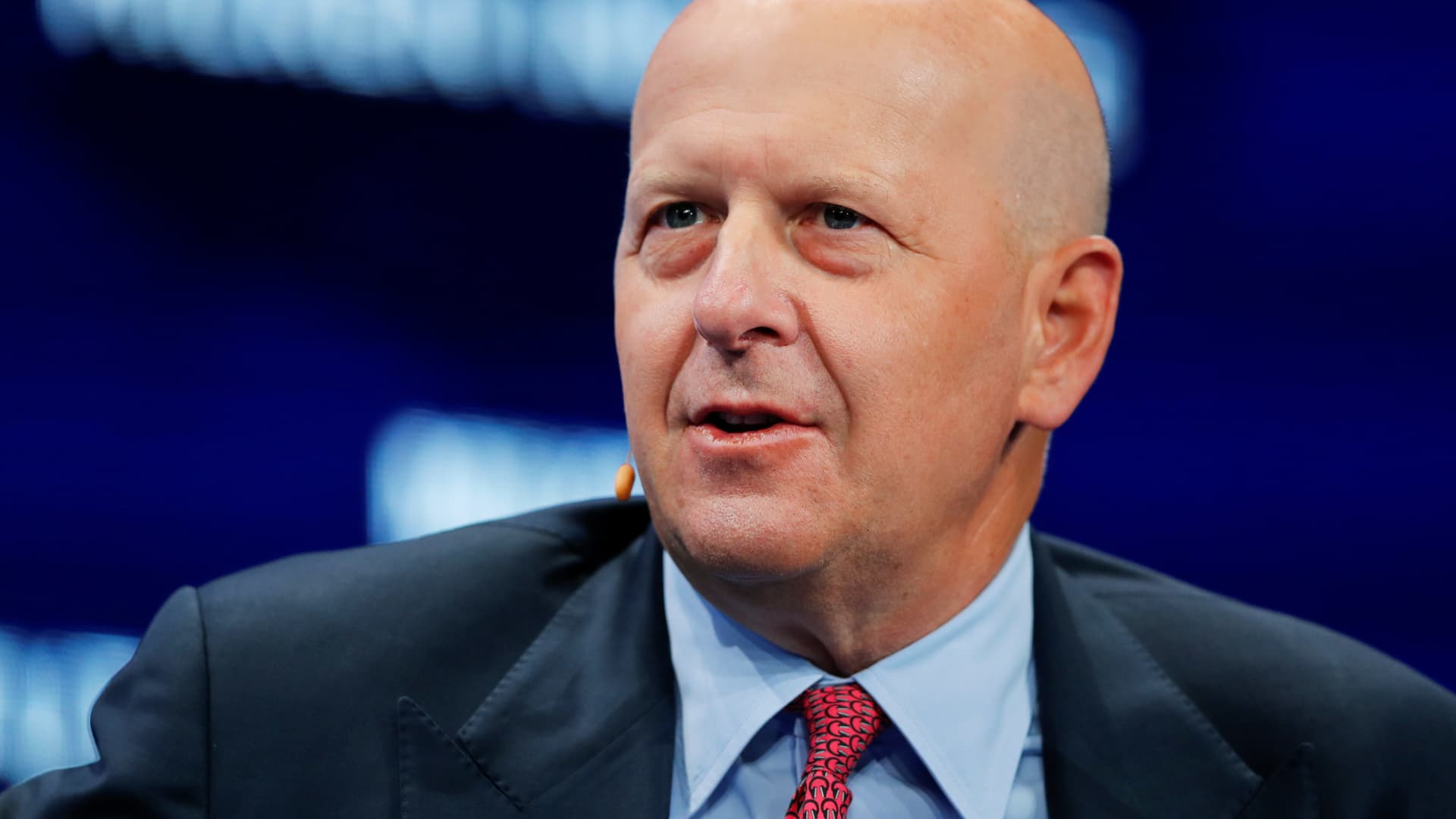
David M. Solomon, Chairman and CEO of Goldman Sachs, speaks during the Milken Institute’s 22nd annual Global Conference in Beverly Hills, April 29, 2019
Mike Blake | Reuters
Goldman Sachs posted first-quarter results that blew past expectations as its traders navigated a surge in market volatility sparked by the war in Ukraine.
Here’s are the numbers:
- Earnings: $10.76 per share, vs. $8.89 estimate, according to Refinitiv
- Revenue: $12.93 billion, vs. $11.83 billion estimate.
The bank said Thursday that profit fell 42% to $3.94 billion, or $10.76 per share, from a year earlier on lower investment banking fees. While revenue sagged 27% to $12.93 billion, that was a full $1 billion more than analysts had expected for the quarter.
“It was a turbulent quarter dominated by the devastating invasion of Ukraine,” CEO David Solomon said in the release. “The rapidly evolving market environment had a significant effect on client activity as risk intermediation came to the fore and equity issuance came to a near standstill. Despite the environment, our results in the quarter show we continued to effectively support our clients.”
Goldman’s traders made the best of that turbulent environment as revenue from fixed income, currency and commodities was up 21% from a year ago to $4.72 billion in the first quarter. That was far more than the $3.04 billion estimate for FICC trading from analysts polled by FactSet. Equities trading revenue came in at $3.15 billion, 15% lower than the first quarter of 2021, but much better than expectations as well.
Goldman Sachs has been one of the big beneficiaries of a torrid two years of Wall Street deals activity, putting up record revenue figures and blowing past performance targets.
The results showed the bank’s trading side stepped in to make up for a slowdown in mergers, IPOs and debt issuance slowed in the first quarter.
Goldman Sachs is the world’s biggest mergers advisor by revenue and is the most Wall Street-dependent firm among the six biggest U.S. banks. One of Solomon’s biggest priorities has been to diversify the firm’s revenue streams, boosting consumer banking, wealth and asset management operations.
Analysts will be keen to ask Solomon how the deals pipeline looks for the remainder of 2022, and if mergers and IPOs are being killed, or merely pushed back into future quarters.
Another area of concern for the bank is trading, where spikes in volatility and market dislocations caused by the Ukraine war may have benefited some traders, while leaving others holding losses. It remains to be seen whether the quarter’s tumult led to the type of volatility that encouraged clients to trade, or it left them on the sidelines.
In February, Solomon increased the bank’s guidance for returns and targets in wealth and asset management divisions after handily exceeding goals set in early 2020.
Goldman shares have fallen 15.8% this year through Thursday, compared with the 10.5% decline of the KBW Bank Index.
On Wednesday, JPMorgan Chase said first-quarter profit slumped 42% as it posted losses tied to Russia sanctions and set aside money for future loan losses.
This story is developing. Please check back for updates.






